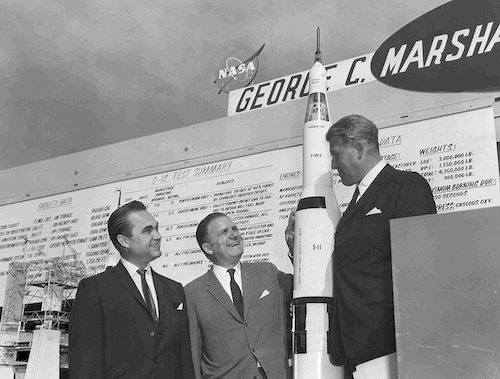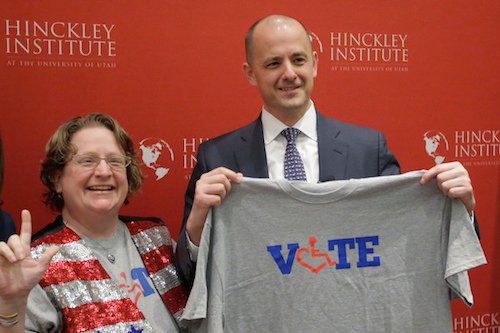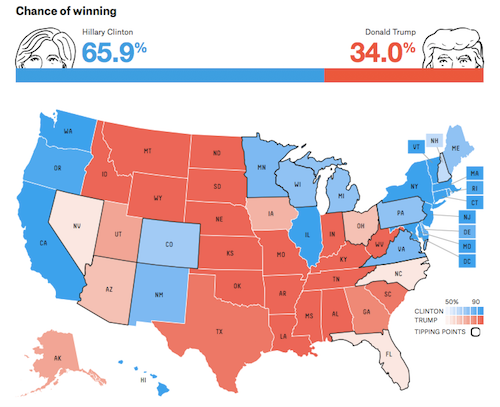After obtaining official candidate status in 11 states and write-in status in 32 others, former CIA official Evan McMullin has concentrated his resources in the Mountain West in hopes of acting as a “disruptor” to the two major parties, who have nominated historically disliked candidates.
If McMullin gets his way, the presidency would be decided by members of U.S. Congress.
But how likely is that to occur? Let’s round up some of the numbers you need to know:
48 years

Gov. George Wallace visits with NASA officials circa 1968 (Wikimedia Commons)
That’s the amount of time it’s been since a third-party candidate won any electoral votes, when George Wallace secured wins in five states across the South en route to a Richard Nixon win. Although back in ’92 businessman Ross Perot won nearly 19 percent of the popular vote, he did not secure enough in any one state to make an impact on the electoral college.
31 points

Evan McMullin stands with a Utah voter (AP Photo/Rick Bowmer)
That’s the most McMullin has polled at in Utah, where an Emerson College study had him winning the state by 4 points. Depending upon how the races in battleground states turn out. According to POLITICO, a prominent Washington analyst predicts that is one “not-impossible” scenario of denying both Hillary Clinton and Donald Trump the votes they would need in order to secure the presidency.
48.4 percent

Source: FiveThirtyEight.com
That’s the amount of the popular vote Hillary Clinton is expected to secure, at least according to the data gurus at FiveThirtyEight. Her chances to win the presidency, according to Nate Silver and co., has plummeted to 65.4 percent — the lowest it’s been. The tightening race means a McMullin victory in the Mountain West would have an even greater impact on the outcome of the race.
